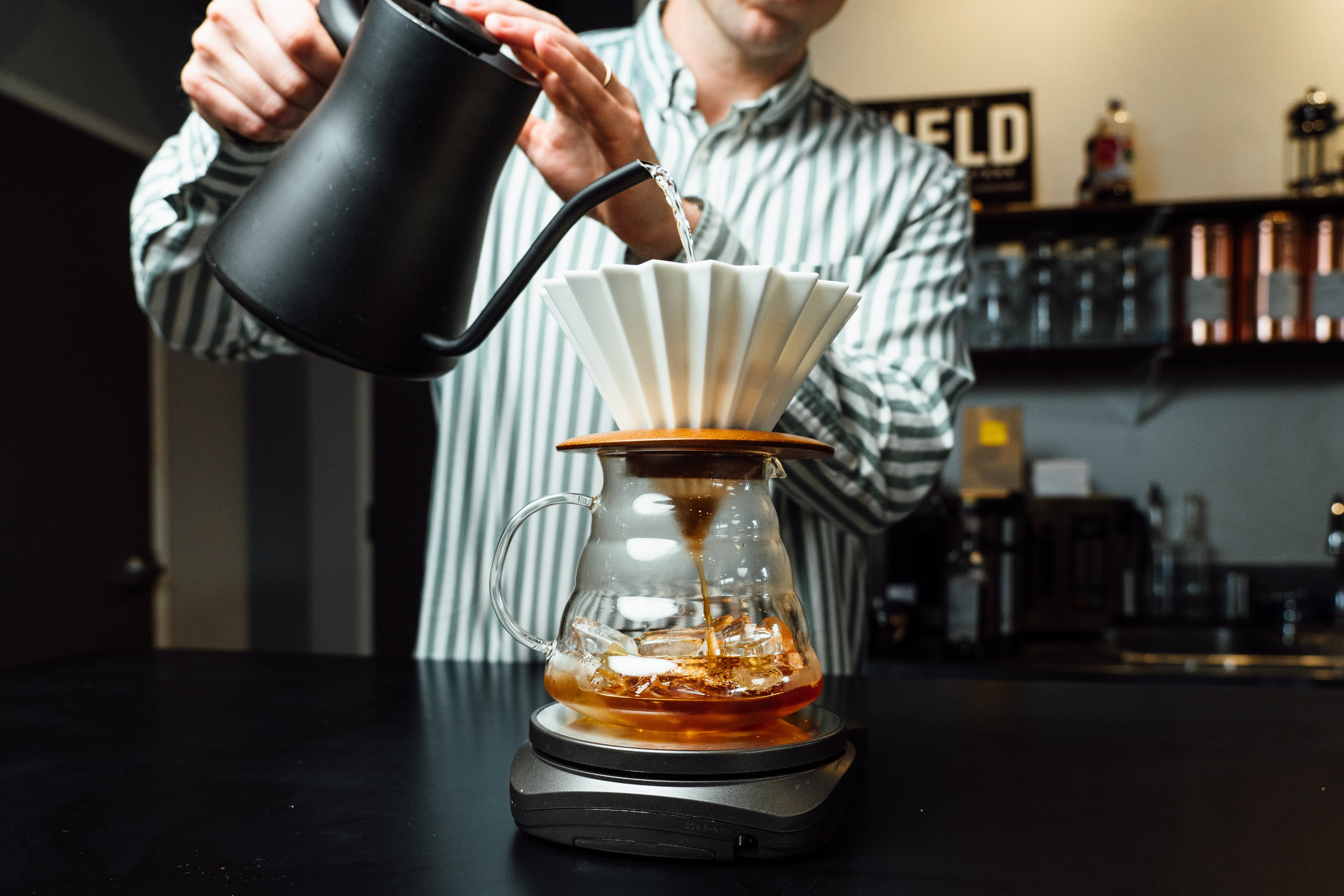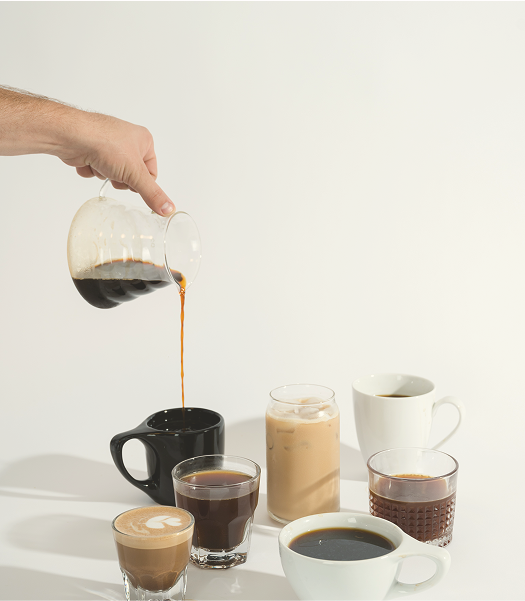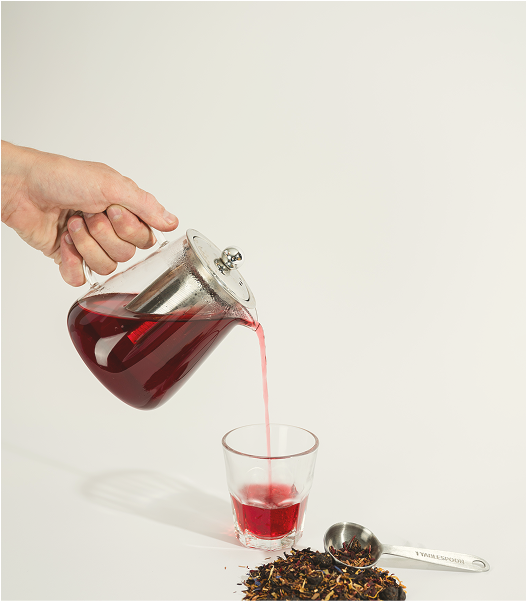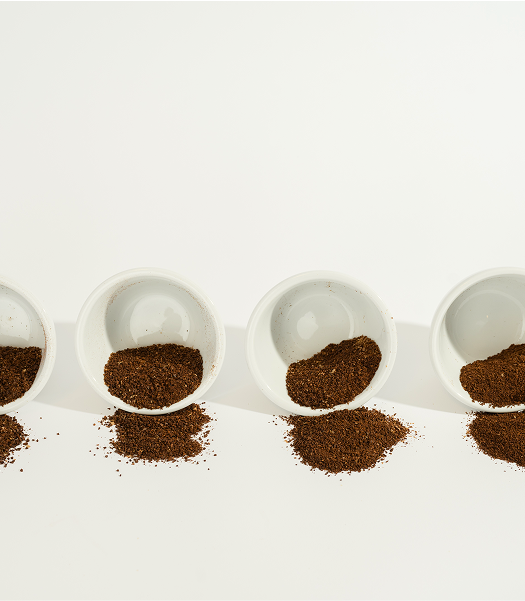Free Shipping on Orders Over $50
Your Complete Guide to Wholesale Coffee Bean Suppliers & Bulk Coffee Roasters
Navigating the world of wholesale coffee bean suppliers and bulk coffee roasters can be a complex endeavor, but it's an essential journey for businesses aiming to deliver exceptional coffee experiences. Whether you're a café owner, a restaurateur, or an entrepreneur launching your own coffee brand, understanding the intricacies of the coffee supply chain is crucial. Our goal at YIELD is to make sure you have a clear understanding of what separates “suppliers” from wholesalers that you can trust and build a long-term partnership with. Discover how to select the right suppliers, evaluate coffee quality, and build lasting relationships that will help your business thrive in a competitive market.

Understanding Wholesale Coffee Bean Supply Chain and Business Models
When it comes to sourcing coffee beans wholesale, understanding the supply chain is crucial. From farm to roastery, the journey of green coffee beans involves multiple stages:
- Direct trade relationships with coffee farmers and cooperatives ensure fair compensation and quality control.
- Single origin beans vs. blends offer distinct flavors for wholesale operations.
- Quality grades and classifications help in selecting the right beans for bulk purchases.

Seasonal availability and crop cycles directly impact pricing for wholesale coffee beans. Regional vs. national distributors play a role in the distribution network, while import/export logistics manage international sourcing. Inventory management and transparency in the supply chain are key for successful operations.
Coffee Bean Sourcing: From Farm to Roastery
For wholesale coffee beans, the journey from the farm to the roastery is an involved process. Direct trade relationships with coffee farmers and cooperatives ensure quality and fair compensation for growers.
Single origin beans offer distinct flavor profiles, while blends combine various beans to create unique taste experiences for wholesale customers.
Quality grades and classifications help buyers navigate the vast options available, ensuring they choose the best beans for their needs.
Direct trade relationships with coffee farmers and cooperatives
Building direct trade relationships with coffee farmers and cooperatives is a cornerstone of ethical sourcing in the coffee industry. By cutting out intermediaries, roasters can ensure fair compensation for growers and maintain quality control throughout the supply chain.
These relationships also allow roasters to establish long-term partnerships with farmers, promoting sustainability and quality consistency in the beans they purchase.
By engaging in direct trade, roasters can support the livelihoods of coffee farming communities and offer customers a transparent and socially responsible product.
Single origin vs. coffee blends for wholesale operations
When choosing between single origin and coffee blends for wholesale operations, it's essential to consider the flavor profile you want to offer your customers. Single origin beans provide a clear expression of a specific region's terroir and characteristics.
In contrast, coffee blends combine beans from different origins to achieve a balanced and complex flavor profile. Blends offer consistency and versatility, making them popular choices for wholesale coffee businesses.
Understanding the preferences of your target market can help you decide whether to focus on single origin offerings or curated blends to meet their demands.

Quality grades and coffee bean classifications for bulk purchasing
Quality grades and classifications play a vital role in determining the characteristics and value of green coffee beans for bulk purchasing. The Specialty Coffee Association provides grading systems that evaluate factors like bean size, defects, and cupping scores to categorize coffee beans.
Understanding these grading systems can help wholesale buyers make informed decisions when selecting beans for their roastery. Specialty coffee grades and cupping scores indicate exceptional quality and unique flavors that cater to discerning consumers.
By familiarizing yourself with quality grades and classifications, you can ensure that you offer great coffee that meets the standards of your target market.
Seasonal availability and crop cycles affecting wholesale pricing
The seasonal availability of coffee beans and their crop cycles directly impact wholesale pricing. Factors such as weather conditions, harvesting schedules, and global demand influence the supply and pricing of green coffee beans.
Understanding these fluctuations can help wholesale buyers anticipate price changes and plan their inventory and pricing strategies accordingly. For instance, limited availability of a particular bean due to seasonal constraints may lead to higher pricing.
By staying informed about seasonal patterns and crop cycles, you can make strategic decisions to optimize your purchasing and pricing strategies for wholesale coffee beans.
Selecting the Right Wholesale Coffee Bean Supplier for Your Business
Evaluating Coffee Quality
When choosing a wholesale coffee bean supplier, evaluating coffee quality and ethical sourcing is paramount. Specialty coffee grades and cupping scores indicate superior quality and flavor profiles that cater to discerning consumers.
Look for suppliers that offer direct trade relationships to ensure ethical and sustainable sourcing practices.
Sample evaluation and quality assurance protocols should be in place to guarantee consistency and quality standards in every batch of beans you purchase.
Specialty coffee grades and cupping scores
Specialty coffee grades and cupping scores serve as indicators of exceptional quality and unique flavor profiles in green coffee beans. These grading systems assess various characteristics such as aroma, acidity, body, and flavor notes to distinguish premium beans.
By selecting coffee beans with high cupping scores and specialty grades, you can offer your customers a superior coffee experience that sets your brand apart. Look for suppliers that prioritize quality and consistency to ensure your products meet the highest standards.
Educating yourself about specialty coffee grades and cupping scores can help you make informed decisions when sourcing beans for your wholesale coffee business.





